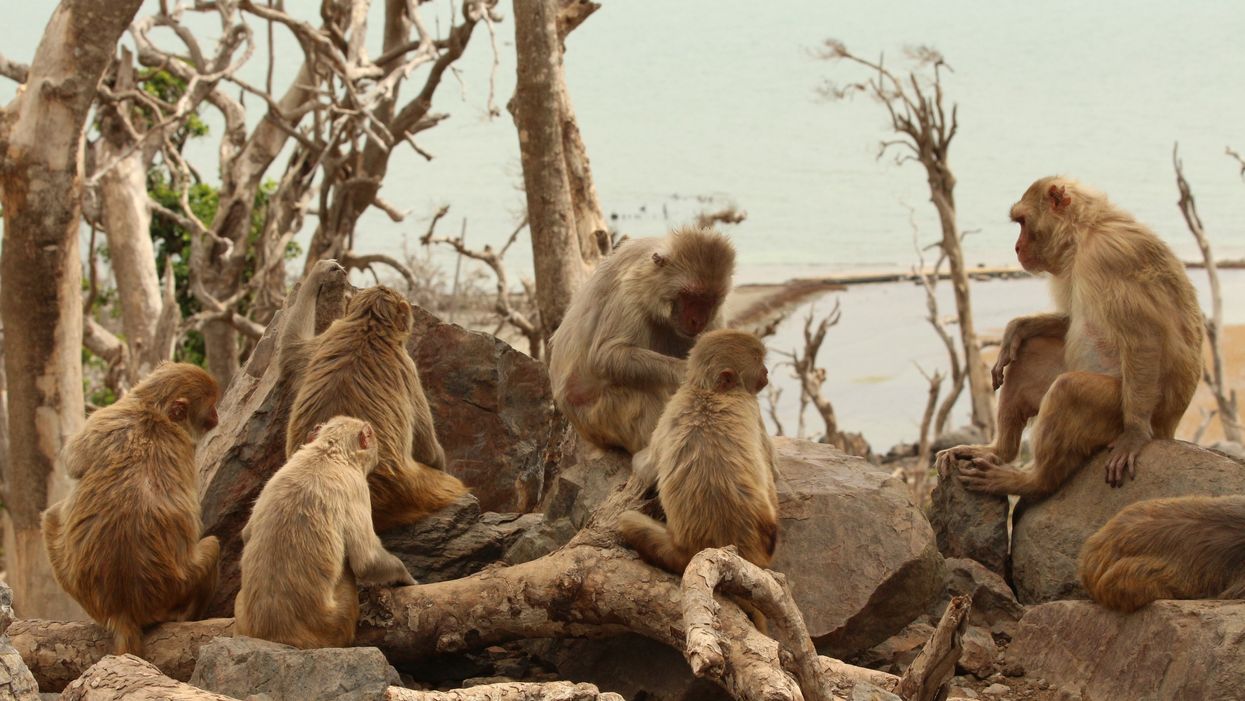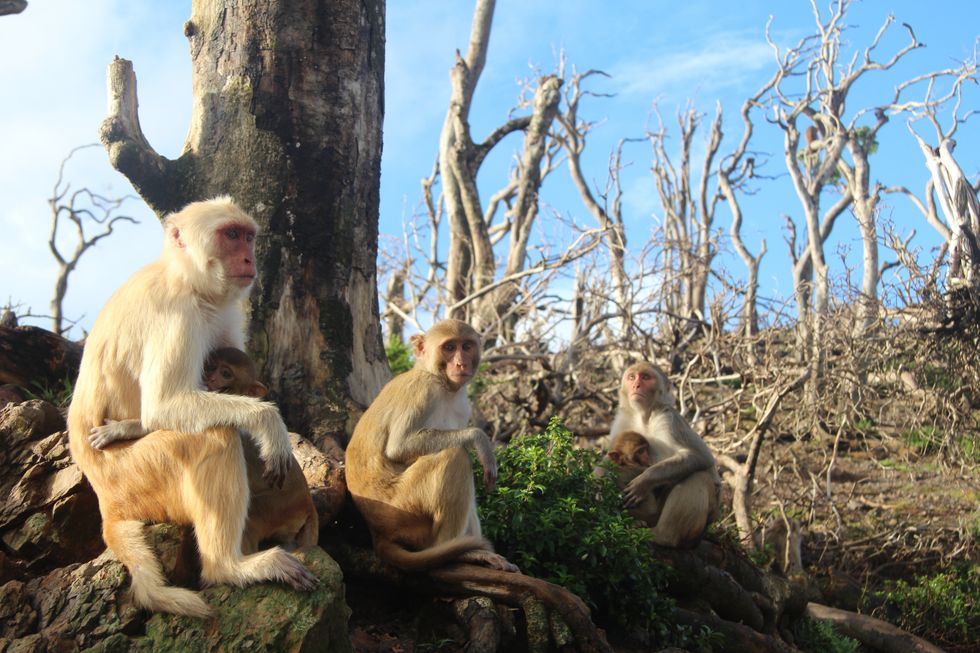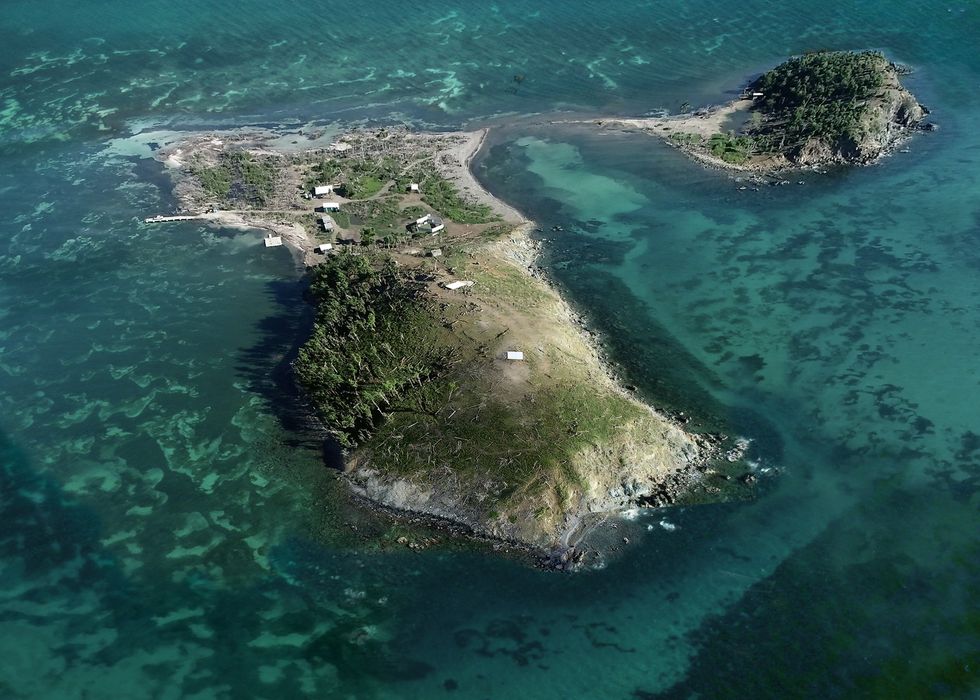
Devastating environmental disasters have a way of bringing people together – and scientists have found the same may also hold true for monkeys.
New research involving UK scientists has found that rhesus macaques living in Cayo Santiago, Puerto Rico made more friends and became more tolerant of each other after a major hurricane ravaged the island in 2017.
Researchers from the universities of Pennsylvania and Exeter were already studying the monkeys in Cayo Santiago – also known as “Monkey Island” – when Hurricane Maria hit Puerto Rico, killing more than 3,000 people.
The team said they noticed the creatures suddenly seemed more tolerant of other individuals, including former competitors, in the aftermath of the storm.
Professor Lauren Brent, from Exeter University said: “We expected the monkeys would use their closest allies to cope with the ecological devastation of the hurricane and so would invest in their existing relationships.
“Instead, the macaques expanded their social networks and the number of individuals that they tolerated sharing limited resources, like a shady space to sit.”
Three years since hurricane devastation, the macaques appear to have maintained the connections formed after the hurricane – by sitting next to each other or grooming, the researchers said.
They found that the increase in social connections was driven largely by those most socially isolated before the hurricane.
The animals also opted for the paths of least resistance, forming connections with the friends of their friends, the researchers said.
The scientists said their work supports the hypothesis that friendly social connections could help primates adapt to extreme environmental change.
Camille Testard, a PhD student at the University of Pennsylvania in the US, said: “They (the rhesus macaques) extended their social networks to include more partners.
“This tells us that these animals can dynamically respond to major events by tweaking the composition of their social networks – individuals who are socially isolated aren’t locked into that, and new relationships can be formed.”
As part of the next steps, the team wants to investigate the long-term effects of making new social connections – which could also help understand how humans cope in the midst of extreme challenges.
James Higham, of New York University in the US, said: “Social relationships have a surprisingly large impact on human health and being in a poor social environment is a high risk factor for humans – remarkably, as high as other health risk factors such as smoking.
“How variation in the social environment gets under the skin and impacts our biology remains unclear.
“Our work on the impacts of changes in sociality following a natural disaster adds yet another element to this complex dynamic.”
The research is published in the journal Current Biology.















